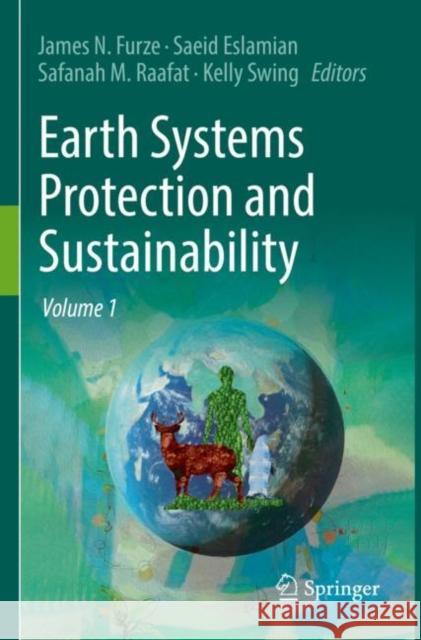Earth Systems Protection and Sustainability: Volume 1 » książka
Earth Systems Protection and Sustainability: Volume 1
ISBN-13: 9783030858315 / Angielski / Miękka / 2023 / 337 str.
Earth Systems Protection and Sustainability: Volume 1
ISBN-13: 9783030858315 / Angielski / Miękka / 2023 / 337 str.
(netto: 575,06 VAT: 5%)
Najniższa cena z 30 dni: 578,30
ok. 16-18 dni roboczych.
Darmowa dostawa!
Earth Systems Protection and Sustainability qualifies imperatives and discusses the use of mathematical approaches to assess and achieve sustainability in threatened and vulnerable Earth systems globally. Mathematical advances in this context include both operational and Boolean methods, as well as linguistic, logic-based Bayesian approaches and generative mathematics relevant to scenario formation. The mathematic methods are refined into functional areas and deeper learning, which enable the use of searching algorithms to achieve optimal solutions for the circular nature and application of sustainability. Pertinent sections and synergistic elements are covered in order to synthesize key informative nodes, advising of the very real dangers facing planet Earth and its biodiversity. Each volume stands in its own right. Analytical and scientific chapters are blended with social resilience and socio-economic development consideration, thus enabling the settings of sustainability within varying scenarios of climatic forces and species dynamics.Volume 1 focuses on ground-breaking evolutionary expansion assisting with life’s continuation on Earth, sustainable management of pathogens and halophyte uses in agroecology, bioremediation methods in drilling waste management, conservation and sustainability of diversity, climate change mitigation strategies, displacement management in a large scale ongoing crisis, risk reduction and management policy, sustainably intelligent-driven markets, sustainability consensus in an uncertain environment and path planning in static and dynamic environments. Pictorial contributions made from across the world refine particularly urgent problems for attention, and provide solutions and methods of environmental sustainability operated in communities, complementing the descriptive chapter sections. Both volumes are targeted for a global audience of academic, professional, classroom, governmental, unit and community members, and seek to include all sectors to ensure ongoing and comprehensive Earth Systems Protection.
Earth Systems Protection and Sustainability qualifies imperatives and discusses the use of mathematical approaches to assess and achieve sustainability in threatened and vulnerable Earth systems globally. Mathematical advances in this context include both operational and Boolean methods, as well as linguistic, logic-based Bayesian approaches and generative mathematics relevant to scenario formation. The mathematic methods are refined into functional areas and deeper learning, which enable the use of searching algorithms to achieve optimal solutions for the circular nature and application of sustainability. Pertinent sections and synergistic elements are covered in order to synthesize key informative nodes, advising of the very real dangers facing planet Earth and its biodiversity. Each volume stands in its own right. Analytical and scientific chapters are blended with social resilience and socio-economic development consideration, thus enabling the settings of sustainability within varying scenarios of climatic forces and species dynamics.Volume 1 focuses on ground-breaking evolutionary expansion assisting with life’s continuation on Earth, sustainable management of pathogens and halophyte uses in agroecology, bioremediation methods in drilling waste management, conservation and sustainability of diversity, climate change mitigation strategies, displacement management in a large scale ongoing crisis, risk reduction and management policy, sustainably intelligent-driven markets, sustainability consensus in an uncertain environment and path planning in static and dynamic environments. Pictorial contributions made from across the world refine particularly urgent problems for attention, and provide solutions and methods of environmental sustainability operated in communities, complementing the descriptive chapter sections. Both volumes are targeted for a global audience of academic, professional, classroom, governmental, unit and community members, and seek to include all sectors to ensure ongoing and comprehensive Earth Systems Protection.











